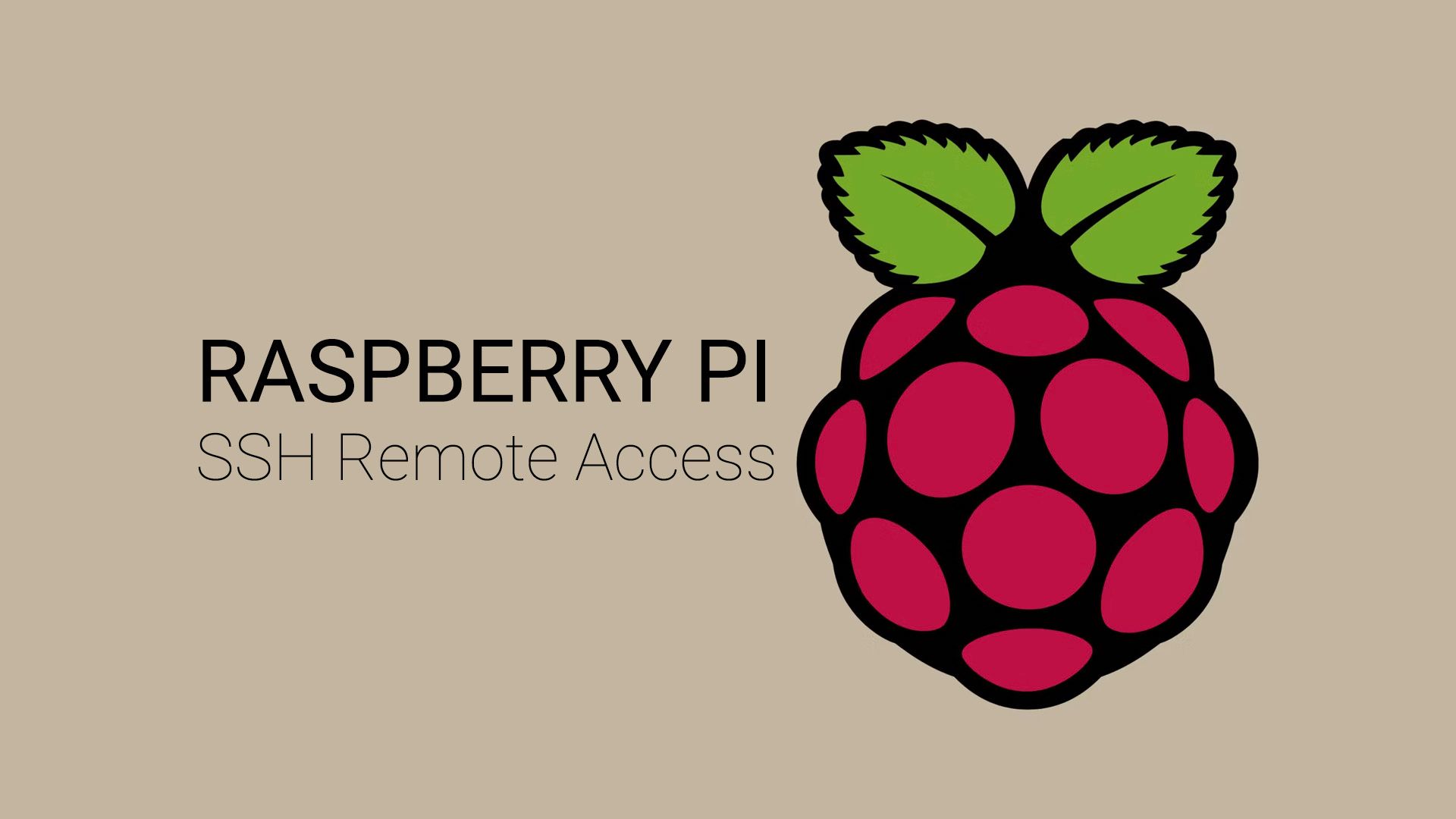Unlocking The Power Of RemoteIoT Platform SSH Key For Raspberry Pi Free
Listen up, folks. The world of remote IoT platforms is blowing up like never before. With advancements in technology, remote IoT platform SSH key for Raspberry Pi free options are becoming more accessible than ever. Imagine being able to control your devices from anywhere in the world without breaking the bank. That's the reality we're living in today, and it's absolutely game-changing.
Now, you might be wondering, what exactly is this remote IoT platform SSH key for Raspberry Pi free all about? Well, let me break it down for you. It's essentially a way to secure your Raspberry Pi remotely using SSH keys, which are like digital passports for your devices. This setup allows you to access your Pi from anywhere, keeping your data safe and sound.
But why should you care? Because this technology isn't just for tech wizards anymore. It's for anyone who wants to dip their toes into the IoT world without spending a fortune. Whether you're a hobbyist or a small business owner, this is a game-changer. Stick around, and I'll walk you through everything you need to know.
- Cracking The Code Showing Respect Crossword Clue
- Cracking The Case The Ultimate Guide To Baker Weights And Their Importance
Understanding RemoteIoT Platforms
First things first, let's talk about what remote IoT platforms are and why they matter. Picture this: you've got a bunch of smart devices spread across different locations, and you need to manage them all from one place. That's where remote IoT platforms come in. They act as a central hub, allowing you to monitor, control, and interact with your devices remotely.
These platforms offer a ton of benefits, from increased efficiency to better security. By using a remote IoT platform, you can automate tasks, gather data, and troubleshoot issues without ever having to physically be in the same room as your devices. It's like having a personal assistant for all your tech needs.
Why Use SSH Keys for Raspberry Pi?
Now, let's dive into why SSH keys are so important when it comes to securing your Raspberry Pi. SSH, or Secure Shell, is a protocol that allows you to access and manage your Pi remotely. But here's the thing: without proper security measures, your Pi could be vulnerable to hackers and other malicious actors.
- Violets Modeling Opportunity Your Gateway To A Blossoming Career
- Wedding Dinah Mattingly A Celebration Of Love Style And Legacy
That's where SSH keys come in. Instead of using passwords, which can be easily guessed or stolen, SSH keys provide a more secure way to authenticate your identity. By using SSH keys, you can ensure that only authorized users can access your Pi, keeping your data safe and sound.
How to Set Up SSH Keys for Raspberry Pi
Setting up SSH keys for your Raspberry Pi might sound intimidating, but it's actually pretty straightforward. Here's a step-by-step guide to help you get started:
- Step 1: Update your Raspberry Pi's software using the terminal.
- Step 2: Generate a new SSH key pair using the ssh-keygen command.
- Step 3: Copy your public key to your Raspberry Pi using the ssh-copy-id command.
- Step 4: Test your setup by connecting to your Pi using SSH.
By following these simple steps, you'll have your SSH keys up and running in no time. And the best part? It's all free, so you don't have to worry about breaking the bank.
Benefits of Using RemoteIoT Platform SSH Key for Raspberry Pi Free
So, what exactly do you get by using a remote IoT platform SSH key for Raspberry Pi free? Let me count the ways:
- Cost-effective: You don't have to spend a dime to secure your Raspberry Pi.
- Increased security: SSH keys provide a more secure way to authenticate your identity than passwords.
- Easy to set up: With a few simple commands, you can have your SSH keys up and running in no time.
- Flexibility: You can access your Raspberry Pi from anywhere in the world, as long as you have an internet connection.
These benefits make remote IoT platform SSH key for Raspberry Pi free a no-brainer for anyone looking to dip their toes into the IoT world.
Common Challenges and How to Overcome Them
Of course, like with any technology, there are some challenges you might face when setting up SSH keys for your Raspberry Pi. Here are a few common issues and how to overcome them:
Challenge 1: Key Generation Issues
Sometimes, generating SSH keys can be a bit tricky. If you're having trouble, make sure you're using the correct syntax for the ssh-keygen command. Double-check that you're saving your keys in the right location, and don't forget to set a strong passphrase for added security.
Challenge 2: Connection Problems
Can't connect to your Raspberry Pi using SSH? First, make sure your Pi is connected to the internet and that its firewall settings allow SSH connections. If that doesn't work, try restarting your Pi and checking your network settings.
By being aware of these common challenges and knowing how to overcome them, you'll be well on your way to mastering SSH keys for your Raspberry Pi.
Real-World Applications of RemoteIoT Platform SSH Key for Raspberry Pi Free
Now that you know the basics, let's talk about some real-world applications of remote IoT platform SSH key for Raspberry Pi free. Here are a few examples:
- Home automation: Use your Raspberry Pi to control smart devices like lights, thermostats, and security systems from anywhere in the world.
- Remote monitoring: Set up sensors to monitor environmental conditions like temperature, humidity, and air quality, and access the data remotely.
- Small business solutions: Use your Raspberry Pi to manage point-of-sale systems, inventory management, and customer relationship management tools remotely.
These applications show just how versatile and powerful remote IoT platform SSH key for Raspberry Pi free can be. The possibilities are truly endless.
Best Practices for Securing Your Raspberry Pi
While SSH keys are a great way to secure your Raspberry Pi, they're not the only thing you should be doing. Here are some best practices to keep your Pi safe and secure:
- Regularly update your software to patch security vulnerabilities.
- Use a strong, unique password for your Pi's root account.
- Limit access to your Pi by only allowing trusted IP addresses to connect.
- Monitor your Pi's activity logs for any suspicious behavior.
By following these best practices, you can ensure that your Raspberry Pi stays safe and secure, even when accessed remotely.
Future Trends in RemoteIoT Platforms
So, what does the future hold for remote IoT platforms? As technology continues to evolve, we can expect to see even more advanced features and capabilities. Here are a few trends to keep an eye on:
- Increased integration with AI and machine learning for smarter automation.
- Enhanced security measures to protect against ever-evolving cyber threats.
- More user-friendly interfaces to make remote IoT platforms accessible to everyone.
These trends show that the future of remote IoT platforms is bright, and there's never been a better time to get involved.
Conclusion
And there you have it, folks. Remote IoT platform SSH key for Raspberry Pi free is a powerful tool that can help you take your IoT projects to the next level. By securing your Raspberry Pi with SSH keys, you can access your devices from anywhere in the world while keeping your data safe and sound.
So, what are you waiting for? Dive into the world of remote IoT platforms and start exploring all the possibilities. And don't forget to share your experiences and insights with the community. Together, we can make the IoT world a safer, more connected place for everyone.
Table of Contents
- Unlocking the Power of RemoteIoT Platform SSH Key for Raspberry Pi Free
- Understanding RemoteIoT Platforms
- Why Use SSH Keys for Raspberry Pi?
- How to Set Up SSH Keys for Raspberry Pi
- Benefits of Using RemoteIoT Platform SSH Key for Raspberry Pi Free
- Common Challenges and How to Overcome Them
- Real-World Applications of RemoteIoT Platform SSH Key for Raspberry Pi Free
- Best Practices for Securing Your Raspberry Pi
- Future Trends in RemoteIoT Platforms
- Conclusion
Article Recommendations
- The Darkest Black Person In The World A Fascinating Journey
- Unveiling The Legacy Kevin Costners Father



Detail Author:
- Name : Dr. Aditya Lakin DDS
- Username : torp.micheal
- Email : waino17@hotmail.com
- Birthdate : 1971-04-27
- Address : 67635 Cory Manors Boscoport, SC 40967
- Phone : 1-978-642-0589
- Company : Ankunding-Wisoky
- Job : CFO
- Bio : Laudantium ipsum sit dignissimos praesentium nam accusantium dolorum. Ipsum molestiae ut aspernatur aliquam saepe qui est. Error aut odio voluptates molestiae sit voluptate ut.
Socials
linkedin:
- url : https://linkedin.com/in/lauretta1196
- username : lauretta1196
- bio : Doloremque ut deleniti rem praesentium.
- followers : 3200
- following : 2309
tiktok:
- url : https://tiktok.com/@laurettabartoletti
- username : laurettabartoletti
- bio : Officiis et maxime laudantium aut non maiores architecto nulla.
- followers : 2613
- following : 1423
instagram:
- url : https://instagram.com/lbartoletti
- username : lbartoletti
- bio : Veniam et impedit quisquam. Et dolorum voluptatem mollitia molestiae et id.
- followers : 3517
- following : 760
twitter:
- url : https://twitter.com/lauretta_official
- username : lauretta_official
- bio : Facilis minus dolorem architecto quas aliquid excepturi pariatur. Corrupti mollitia dolorem quia nemo quasi omnis. Quaerat quis id enim minus.
- followers : 2461
- following : 2999